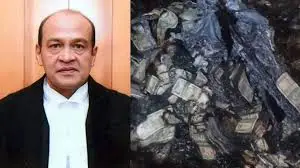‘Action has to be taken by President, PM’: SC rejects plea seeking FIR in Justice Yashwant Varma cash row case

The Supreme Court recently rejected a plea that sought an FIR against former Delhi High Court judge Justice Yashwant Varma. The petition concerned the discovery of a large amount of half-burnt cash found at his official residence after a fire.
Background of the Case
The controversy began when a fire broke out at Justice Varma’s home. Officials found a significant sum of partially burnt currency notes during the investigation. This discovery raised many questions and calls for a full inquiry. The Supreme Court responded by ordering an internal inquiry. The inquiry report confirmed the presence of the cash. The findings were sent to the President and the Prime Minister for further action.
Supreme Court’s Decision
A bench of Justices Abhay S. Oka and Ujjal Bhuyan said the issue had already been referred to the President and Prime Minister. They noted that petitioners must first approach the proper authorities before asking the court for relief. Justice Oka clearly said, “Action has to be taken by the President and the Prime Minister.” He advised petitioners to file a representation with these offices before coming to the court.
Implications and Context
The Supreme Court’s ruling highlights the need to respect the separation of powers in the Indian Constitution. The court showed restraint by letting the executive handle this sensitive matter first. This approach protects the balance between the judiciary and other branches of government.
The ruling also sets a clear example that courts will not interfere unless constitutional authorities fail to act. It stresses that high-profile investigations involving judges must follow proper procedures.
What Happens Next?
While some may see the court’s refusal as a delay in justice, the case remains under the watch of the President and Prime Minister. They hold the authority to decide on further investigations or disciplinary actions based on the inquiry report.
The public and legal experts await the next steps from these authorities. This case reminds us that courts respect the roles of other constitutional bodies and act only when necessary.






